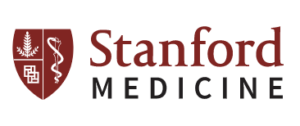Embryo Disposition Options
Three options are provided for final disposition of embryos:
- Anonymous or directed donation to another couple; for more information, read the Embryo Donation Options information below or visit this page for a list of donation program referrals.
- Donation for research, including stem cell research; for more information, see the Embryo Donation for research option below
- Thaw and discard; please contact ReproTech for details
Embryo Donation Options
Now is the time to think about the future of your embryos. The reality of infertility can be devastating, as you well know. For many couples, their only hope of achieving a full-term pregnancy begins with donated embryos.
Embryo donation is a wonderful gift, but, as you would expect, the steps required go far beyond just agreeing to donate your embryos. Each program has multiple steps and requirements before a donation is complete. Further, not all embryos will qualify for each donation program, the number, stage and quality of your embryos will need to be evaluated as well as the source of the gametes (was a sperm or egg donor used).
To view a referral list of embryo donation programs that ReproTech has worked with, please check our Embryo Donation & Disposition Page and click on the “Embryo Donation Program Referrals” section.
You may also have the option to donate your embryos to a recipient through the clinic that originally froze your embryos or to a research donation option. Please read this information carefully to see if your embryos would qualify for these programs.
Requirements for Embryo Donation through the Originating Clinic
Contact ReproTech if you are a current ReproTech cryostorage client wanting to donate your embryos through the clinic where you underwent your IVF procedures.
Many clinics that work with ReproTech for long-term storage of their former patients’ embryos, also have active embryo donation programs, and prefer to provide donation services “in-house.” There are some advantages to this, the biggest being that the laboratory at the clinic should be very familiar with the cryopreservation system used to freeze and thaw your embryos, and thus have the possibility of a better outcome when compared to a laboratory which has not used that particular system before.
While we live in a relatively “transient” society today, donation at the clinic you used does increase the likelihood that any resulting children will be located nearer to you. You may view this as a positive, especially if the donation is an “open” donation and you wish to maintain contact with the recipient(s) and\or children.
The first step would be for you to contact the clinic where you underwent your IVF procedures to see if they offer donation. As your embryos are being stored in a ReproTech facility, and you have a cryostorage agreement with ReproTech, you will also need to contact us for necessary forms so that we can coordinate the transfer of your embryos back to the clinic for donation.
Keep in mind that you are responsible for storage fees until your embryos are transferred back to the IVF center. Additionally, depending on previous arrangements with the center, you may incur shipping fees.
Embryo Donation for Research Options
ReproTech strives to provide our clients with disposition options which both meet the clients’ desires as well as providing opportunities for the advancement of science. However, the reality is that research facility options are becoming increasingly limited, and some state laws prohibit participation. Limitations may be based off the state where the donor resides and others may be based upon the state where the embryos are stored.
There are many factors which must be evaluated when donation for research is considered. In almost all cases, patients wishing to donate their embryos for research will be required to complete specific consent forms approved by the Institutional Review Board of each research facility.
At this time ReproTech is able to provide the following options for donation to research. Please note that these programs may close for new donations at any time so what is available today may not be available next week.
Note that state laws may prohibit participation.
1. University of Michigan

Currently only accepting preimplantation genetic tested (PGT) embryos where a genetic defect has been identified. Embryos must not have been created with donor oocytes (eggs) or donor semen. Also potentially infectious embryos will not be accepted as all infectious disease testing results for both donors must be negative or non-reactive. The primary focus of the study is the development of disease affected human embryonic stem cell lines.
More than 40 scientists are active participants in the Center for hES Cell Research. The research ranges in scope from studies of the fundamental biology of stem cells and the human embryo, to understanding the development of all the organ systems in the body, to therapeutics and bioengineering of tissues and organs.
ReproTech requires documentation of final disposition, including notarized signatures of our clients. When you are ready to make a donation of your embryos, or if you just have questions, please contact us and we would be happy to explain the process and send you the required form.
Read more about the Center for hES Cell Research program.
2. RENEW Biobank – Stanford University

The RENEW Biobank accepts donations of embryos for future research. Only researchers with expertise and resources to handle human embryos will receive these specimens. Donated tissue will never be used to create a baby; the goal is to improve treatment options for future patients. The RENEW Biobank is only able to accept ReproTech specimens that are being stored in Nevada and Texas as of now. Minnesota and Florida do not have clearly defined laws regarding acceptance of embryos donated to research, so at this time, Stanford’s program has taken the position not to accept embryos from these states.
If you would like more information on the RENEW Biobank’s research and enrollment process, please take a look at their website.
If you would like to reach out to the coordinator for questions, please email renew-biobank@lists.stanford.edu.